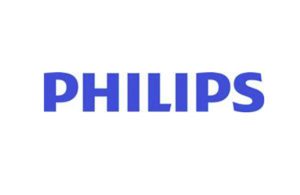 Philips (NYSE:PHG) today agreed to pay more than $24 million to resolve False Claims Act allegations revolving around kickbacks.
Philips (NYSE:PHG) today agreed to pay more than $24 million to resolve False Claims Act allegations revolving around kickbacks.
The U.S. Department of Justice (DOJ) alleged that Philips RS North America (formerly Respironics) misled federal healthcare programs by paying kickbacks to durable medical equipment (DME) suppliers. Affected programs included Medicare, Medicaid and TRICARE, the healthcare program for active military and their families.
According to a DOJ release, the settlement resolves allegations that Respironics caused DME suppliers to submit false claims for ventilators, oxygen concentrators, CPAP and BiPAP machines, and other respiratory-related medical equipment because Respironics provided illegal inducements to the DME suppliers. Respironics allegedly gave the DME suppliers data free of charge that could assist in marketing to physicians.
“Paying illegal remuneration to induce patient referrals undermines the integrity of our nation’s health care system,” said Principal Deputy Assistant Attorney General Brian Boynton, head of DOJ’s Civil Division. “To ensure that the goods and services received by federal health care program patients are determined by their health care needs, rather than the financial interests of third parties, we will pursue any individual or entity that violates the prohibition on paying kickbacks, including DME manufacturers.”
The settlement comes at the same time that a massive recall continues; the recall involves more than 1 million Philips Respironics CPAPs, ventilators and other respiratory devices. Philips remains in separate talks with federal prosecutors over its handling of the recall.
Philips to pay feds, states
Under the settlement, Respironics will pay the U.S. $22.62 million. It will pay $2.13 million to various states affected by the conduct on Medicaid programs. Those payments are pursuant to settlement deals the company has or will enter into with those states.
Additionally, Respironics entered into a five-year Corporate Integrity Agreement (CIA) with HHS-OIG. DOJ said this means the CIA requires Respironics to implement and maintain a compliance program. The program includes reviews of arrangements with referral sources and monitoring of Respironics’ sales force. The CIA will also require the company to retain and independent monitor, selected by HHS-OIG, to evaluate the compliance.
Jeremy Orling, a Respironics employee, brought forward the initial lawsuit. Orling filed under the qui tam (whistleblower) provisions of the False Claims Act. Orling will receive approximately $4.3 million of the federal settlement amount.
A Philips spokesperson said that the company agreed to settle the claim to avoid litigation. The spokesperson said litigation requires time, resources and expenses. In agreeing to a settlement, it is not acknowledging any alleged facts, liability or wrongdoing in the claim.
“Settling this claim allows us to put this matter behind us and maintain our focus on our customers and the patients they serve,” said David Ferguson, business leader for Philips Respironics. “We maintain a comprehensive compliance program and we will work with the relevant authorities to satisfy the terms of the settlement. This agreement should have no impact on our customers or the patients they serve.”
More settlements to come between Philips, DOJ
Philips has reached the final stages of settlement discussions with DOJ regarding three separate matters. All discussions are related to its connected care portfolio. This is the second of the three settlements reached. The first, announced earlier this week, resolved allegations that Philips substituted the components of its Intellivue MP2 mobile patient monitoring device that it sold to military purchasers without rectifying the device for military airworthiness. Philips settled for $4.2 million in that case.
Despite their relation to the connected care portfolio, none of the three settlement discussions are related to the June 2021 Philips Respironics recall.

